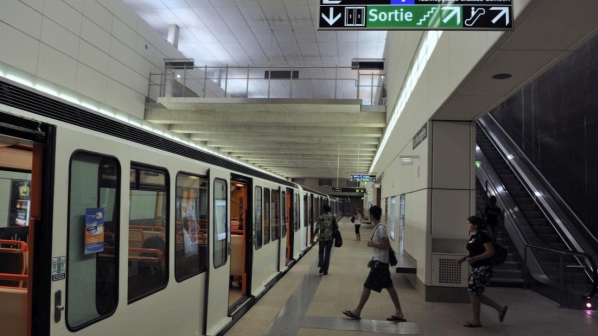As part of the contract, Alstom will develop, supply and install the operating system and equipment to allow automatic operation of the network’s two lines. The company will also commission 38 new four-car rubber-tyred metro trains, which are scheduled to enter service in early 2024, and modernise all the audio-visual passenger information systems inside the stations.
The trains will operate in semi-automatic mode with drivers until mid-2025 on Line M2 and until 2026 on Line M1, before switching to full automation (GOA4).
Each 65m-long train, which will have wide inter-car gangways, will be able to carry up to 500 passengers at four passengers per m2. The trains will feature large bay windows, an HVAC system and modern passenger information systems. Marseille designers Ora-ïto and Fabien Bourdier contributed to the design of the new fleet.
Three designs were proposed to Marseille, which arranged a digital consultation to give residents the opportunity to offer their opinion on the designs.
The new trains will be 96% recyclable, and will consume 25% less energy than the current fleet. Environmentally friendly features include electric braking down to 0km/h and LED lighting.
Alstom will provide its Urbalis 400 CBTC solution for the automation system.
Six of Alstom’s facilities in France will be involved in the project: Aix-en-Provence for the project management; Valenciennes for the design, interior layout, assembly, tests and validation of the trains; Ornans for the engines; Le Creusot for the bogies; Villeurbanne for the on-board electronics, passenger information, predictive maintenance and signalling system equipment; and Saint-Ouen for the coordination of the artistic design, development and integration of the signalling system.
For detailed information on fleet orders from around the world, subscribe to IRJ Pro.

